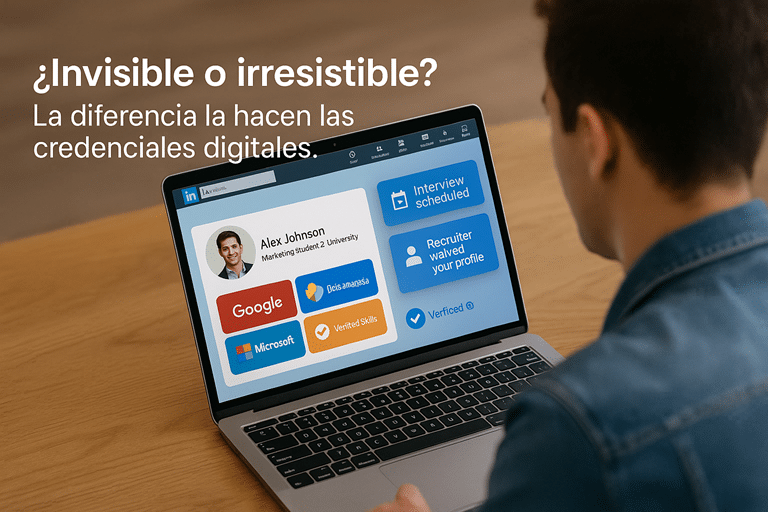The lasting skills They have become a fundamental pillar for professional and organizational success. These skills, which remain relevant despite technological advances, are essential for building future-proof careers and businesses. Next, we explore what these types of competencies refer to, their value, and how they can be identified and certified.
What exactly are they?
Durable competencies are skills that maintain their relevance and value over time, regardless of changes in technology or market demands. These competencies focus on how you apply your knowledge and skills, highlighting aspects such as critical thinking, effective communication and adaptability.
What is its value?
The value of these skills lies in their versatility and permanence:
- Lasting value: Unlike technical competencies, which can quickly become obsolete, durable skills remain essential throughout your career and personal life.
- Transferability: These competencies can be applied in various contexts, from the work environment to personal interactions.
- Professional and organizational resilience: Durable competencies enable people and organizations to adapt and thrive amid technological disruptions.
Durable competencies: Future-proof
Investing in these types of competencies is crucial to ensuring a career and organization that is resistant to change. Seven of the ten most in-demand skills in the labor market are durable skills, including communication, the creativity, the leadership, the solving problems, the adaptability, the collaboration and critical thinking.
Furthermore, the five most in-demand durable skills are 4,7 times more common than the five most in-demand technical skills (Software Development, Data Analytics, Project Management, Cybersecurity, and Digital Marketing).
Perk Framework for Durable Skills
El Advantages Framework for Durable Skills, launched on January 17, 2024, is a key milestone in the evolution of the approach to these competencies.
This framework provides a common lexicon for essential non-technical skills, developed in collaboration with employers. It is considered a crucial step to address gaps in education and skills validation equitably, especially in the area of enduring competencies.

How to determine, build and catalog lasting skills?
Identifying and developing these types of competencies requires a structured approach:
- Competency assessment: Use assessment tools to identify the level of proficiency in lasting skills.
- Continuing Education: Implement development programs that strengthen both technical and lasting competencies.
- Cataloging of skills: Create a competency cloud to map and track progress in developing these skills.
How to make lasting skills visible?
One of the biggest challenges in today’s world of work is make lasting skills visible. This is where the digital credentials. These allow you to validate and show lasting skills in a clear and verifiable way, making it easier for employers and collaborators to quickly identify key competencies.
Digital credentials not only certify technical competencies, but also highlight lasting skills such as problem solving, adaptability and leadership, making them visible and recognizable in the labor market.

Impact on professional and university preparation
As technical competencies rapidly become outdated, preparing students and professionals with lasting skills is more important than ever.
In fact, only 26% of college-educated American adults believe their education was relevant to their work and daily lives. Additionally, a recent study showed that the number of teens considering a four-year college degree decreased from 71% in 2020 to 51% in 2022.
These data underscore the need to focus on skills that transcend academics and remain useful over time.
Focusing on lasting skills is key for today’s Universities
For universities, focusing on these types of competencies not only improves students’ preparation for the world of work, but also increases the perceived value of a university education. More Americans are prioritizing an internship at Google over a degree from Harvard, reflecting the growing importance of acquiring skills that are directly applicable in the job market.
In conclusion, durable competencies are the key to staying relevant in a world where technical skills quickly expire. Developing and certifying these skills through digital credentials is essential for future professional and organizational success.
Ready to certify lasting competencies in your organization? Create a free account at Acreditta or contact us at info@acreditta.com.
Subscribe to blog here and receive all our content







